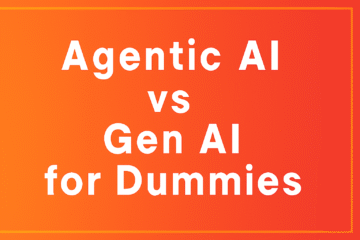It was 1995, I flick the power switch of my Compaq Presario desktop in my dorm room, the first time I heard that screeching modem tone just weeks before our campus upgraded to T1 connections. That free AOL CD from a PC Mag became my passport to something extraordinary.
Back in those days, the internet felt like exploring a strange new city where every alleyway held potential surprises. You’d stumble into chat rooms with names like “DragonSlayer42” or “BeavisOwnsButthead69” and actually have conversations with real people about ridiculous topics that somehow mattered in the moment. You argue, you laugh, you use weird ASCII combos to make a crude but complex reaction.
There were no algorithms deciding what I should see next. No “engagement optimization.” Just pure, unfiltered human interaction, good or bad. I once spent an entire Saturday arguing with a stranger from Norway about whether Rockford Fosgate amplifiers was better than Orion amps. We never convinced each other, but that wasn’t the point.
The magic was in the messy, unpredictable nature of it all. Heck, I even had a 2-month long chat with a depressed ex-military person asking me, a 18-yo, about mortgage and child support advice. Weird, most possibly an early attempt of scamming, but still real.
The Slow Death of Authentic Connection
Now when I open any social media app, I’m bombarded with the same recycled content. The Dead Internet Theory (explained brilliantly in this video) suggests most of what we see online today isn’t even created by humans anymore. It’s bots arguing with other bots. AI-generated articles pretending to be news. Social media accounts that haven’t posted an original thought in years.
The numbers don’t lie. According to recent studies, nearly 50% of all internet traffic is now automated. That viral tweet you laughed at yesterday? There’s a decent chance it was written by a marketing intern using AI to scrape and reuse content.
That heartfelt product review? Probably generated by an algorithm designed to manipulate your emotions to accumulate 5-star confirmation bias to further empty your bank account.
How Big Tech Stole the Web
The uncomfortable truth is that the internet we grew up loving has been completely commercialized. As this video highlights, today’s internet serves three masters: advertisers, shareholders, and engagement metrics – in that exact order.
What was once a digital frontier has become a carefully controlled shopping mall where we’re both the customers and the products. Every click is tracked. Every pause is analyzed.
Every emotion is monetized. The platforms don’t care about real human connection, they care about keeping you scrolling just long enough to serve you another targeted ad.
We are conversion metrics, nothing more.
My Digital Safe Houses
These days, I find myself retreating to the few remaining corners of the internet that still feel genuine. There’s a WhatsApp group with friends and acquaintances that’s been active for over a decade. They came from PhBB forums about automobiles, gaming, sports, fantasy basketball, martial arts, and so forth. A thread with people where we share absurd memes that would make no sense to anyone else. These spaces matter precisely because they’re not optimized for “engagement.”
I desperately miss the old forums and message boards. The ones where you’d recognize certain usernames and actually develop relationships over months of conversation. Where discussions had room to breathe instead of being reduced to 280-character hot takes.
The amazing thing is, 70% of these people I’ve interacted with for decades, I’ve never met in real-life. Some of them, I’ve only met recently, 15-20Y after our first online interaction.
The modern internet moves too fast and is too gamified to allow real connections to form.
The AI Paradox
Here’s what really terrifies me. As someone who works in tech, I see the incredible potential of AI every day. But I also see how it’s accelerating the destruction of authentic human interaction online. More synthetic content. More artificial engagement. More pretending that quantity equals quality.
The worse thing is, hop onto any corporate environment, be it on the cesspool known as LinkedIn, Whatsapp/Telegram groups about business or career, and especially in meetings with your “leaders”, everybody’s ignoring the flaws and the long-term repercussions in pursuit of being “cutting edge”, and not being left out. Investors pile into the shallow false claims of what corporations can do with AI (or whatever hot technology there is), and the cycle continues.
We’re standing at a crossroads. Do we accept this sanitized, corporate-controlled version of the internet as inevitable? Or do we push back to preserve what made it special? I don’t have all the answers, but I know this much. The internet shouldn’t make you feel this isolated.
When was the last time you had a real, meaningful interaction online? Do you think we can reclaim some of what we’ve lost, or has that ship sailed? I’d genuinely love to hear your thoughts, assuming there’s still a real person on the other end reading this.


0 Comments